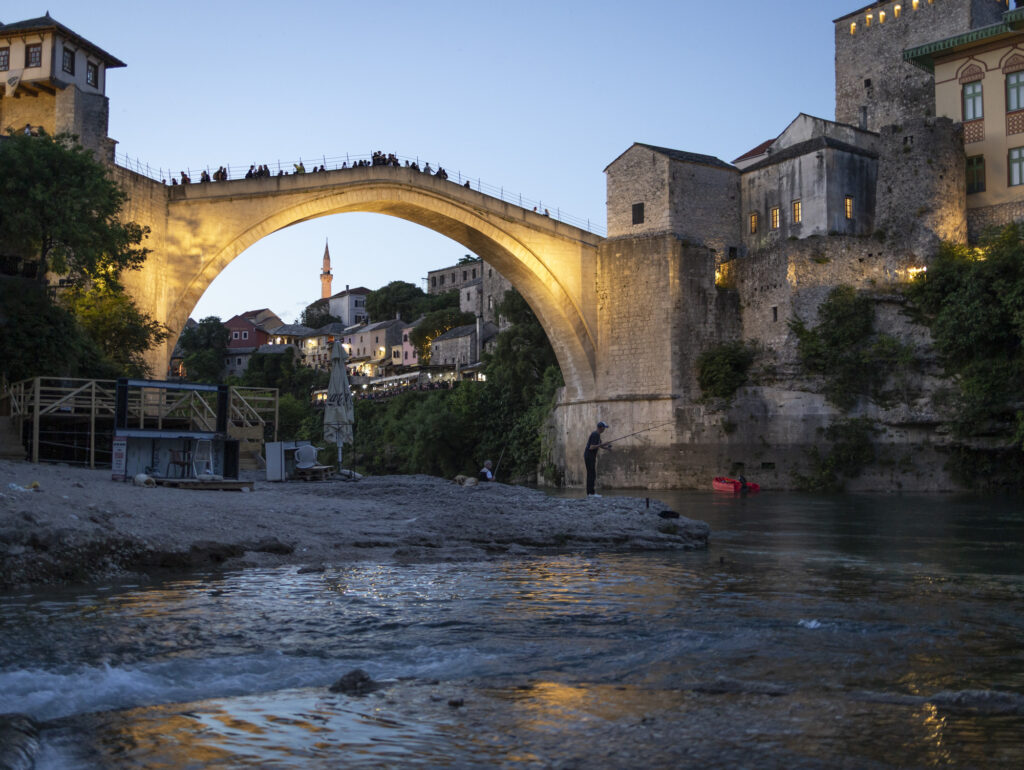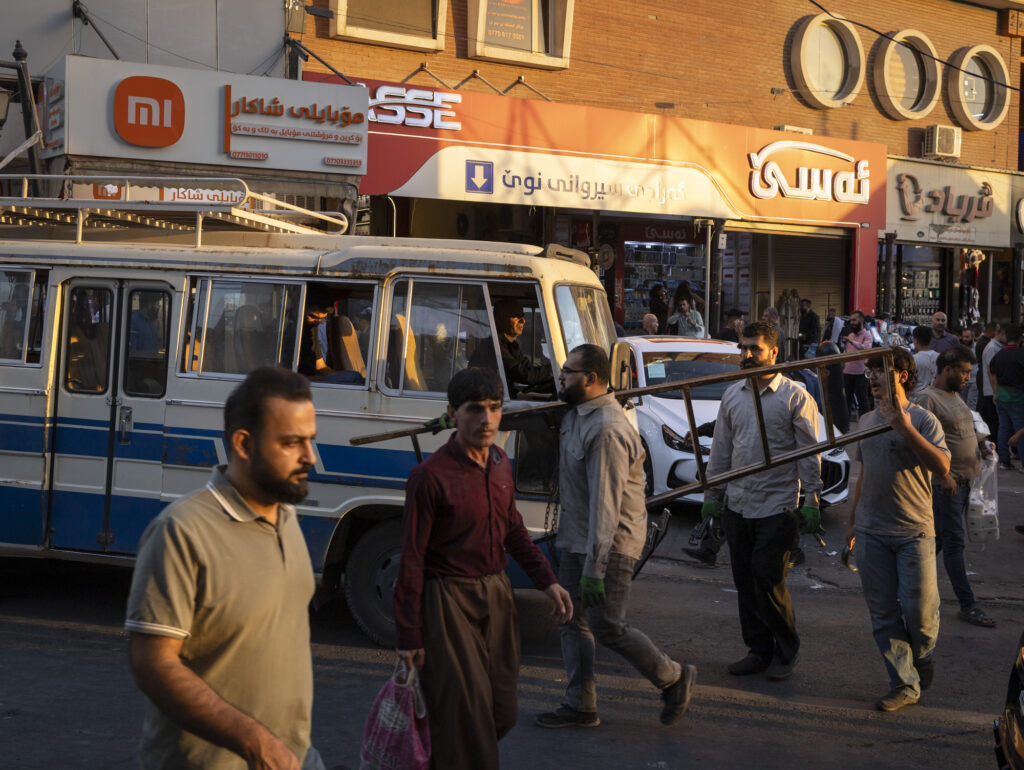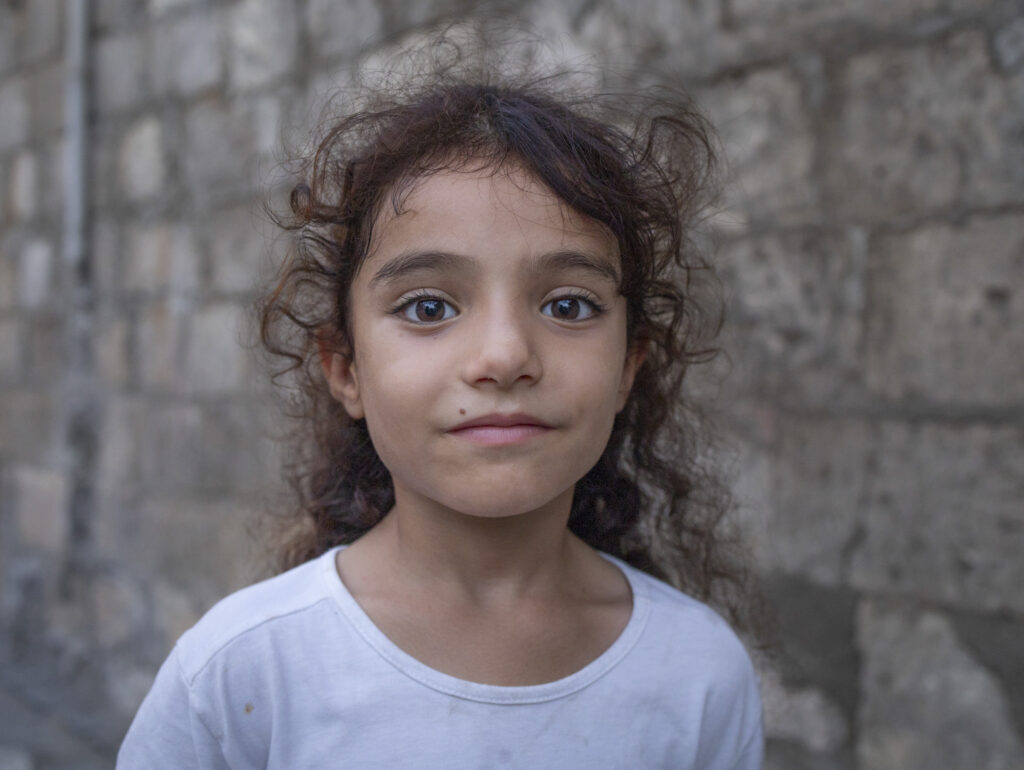Invisible Stories are short narratives that, starting from real photographs, invent the private lives of the characters, setting them in authentic historical and social contexts.
The bridge is reflected in the icy waters of the Neretva as Adnan casts his net with a gesture his grandfather taught him as a child, before the war took everything away. His gaze skims the green waters of the river, the still center of a city now in constant motion.
“The river is stingy today,” he mutters, cigarette in hand, to a Japanese tourist taking photos with his cell phone. They don’t understand, but nod anyway.
A few steps away, on a new reinforced concrete bridge, the girls from the Muslim high school rush by. Colorful hijabs, laughter floating above the noise of the cars. Aida, the youngest, pauses for a moment. “That old man has been fishing here forever,” she says to her companion. “My mother says it’s a given; she believes that as long as the river is here, he will be here too.”
Adnan’s only distractions are to pour himself a glass of rakija, as silent as the dogs wandering on the beach. Today, just as then, he isolates himself in his own world, when instead of children’s screams, gunshots could be heard.
At the time, he fished with Marko, a Croatian boy. They stopped speaking in 1993, and since then, Marko has always fished in a small boat. In those years, the bridge was under the gaze of snipers, but neither of them ever lost their habit. They had to find a foothold to stay afloat.
However, conflicts rotted the roots, souls were corrupted, and glances stopped meeting even among those who until the day before considered themselves brothers.
Meanwhile, not far away, shouts with a London cadence drown the waters. In Mostar, it’s easier for young people to be foreigners these days. In Bosnia, there are almost no young people left. Half of those remaining are thinking of leaving, many have already done so.
In the streets of the old city, blond-haired gypsy children tumble among the crowd, laughing and joking. Accompanied by the sound of a guitar, the night slowly begins to swallow the day. The market streets stop bustling, the lights come on on the old bridge.
Tourists ascend and descend like an arpeggio, between group photos and selfies. The restaurant chimneys spew smoke, churning out dishes to the rhythm of a locomotive.
Adnan decides it’s time to go.
With automatic gestures, he puts away his fishing rod and slowly heads home.
Every evening since the war ended, he’s taken the same route he did as a child. He passes the rebuilt mosque and the new Croatian shopping center, where the shop windows gleam with imported goods and reflect election posters with stern faces promising “a better future.”
His steps are accompanied by one cigarette after another as he walks through the streets of West Mostar, the Croatian part of the city. The air is filled with the smell of pork; A group of young people drink beer on the steps of the Orthodox church.
Mostar is still a city split in two. The Neretva Canyon is a physical and ethnic border, dividing Bosnian Muslims and Croats.
There are two central post offices, two education systems, two universities, two water suppliers, two municipal cleaning companies, two fire departments.
The murmur of tourists covers the tensions like a carpet; the old city shimmers and dazzles, enough to hide from those who don’t want to see that just beyond, in the shadows, there are still open wounds.
Meanwhile, the river continues to flow under the bridge.
Beneath him, invisible, the stones do their slow work. They smooth the shards of war, transform grenades into pebbles, bullets into pebbles.
Adnan stops to look at it one more time before entering the house. Every day he wonders when the rebuilt bridges will not only be the Ottoman ones, but also those between old friends.
Read it in :
Italiano
















